Retro Replay Review
Gameplay
Zork: The Cavern of Doom transforms the classic gamebook experience into an accessible digital adventure, guiding players through a series of multiple-choice prompts that determine the fates of modern siblings June and Bill—reborn as the heroic Juranda and Bivotar. From the moment you’re invited to “purchase this very book,” you’re immersed in a playful postmodern conceit that constantly reminds you of the medium you’re engaging with. The streamlined keyboard and mouse controls allow seamless navigation between chapters, eliminating the need to flip physical pages and letting you focus on the core puzzles and choices.
The branching narrative is the heart of this title, offering 16 ill ends and one true path through the depths of the Great Underground Empire. Each decision point feels meaningful and often unpredictable, whether you’re tinkering with bizarre Zorkian machinery or outwitting the dragon Leblong. The constant threat of grues in dimly lit corridors keeps tension high, while cameos from familiar faces like the cunning thief add flavor to your journey. Ambitious puzzle designers will appreciate the balance between logic-driven challenges and whimsical surprises.
Replayability is a major strength here, as discovering the singular correct sequence of choices can take multiple playthroughs. Automated transitions in the Z-code or HTML conversion preserve the original book’s pacing while accelerating the exploration of alternate outcomes. Though a few puzzles may feel obtuse to newcomers, the built-in hints and save–load functionality ensure that you’re never completely stranded. Overall, the gameplay loop is faithful to the spirit of the gamebook, updated for a modern audience without losing its old-school charm.
Graphics
As a primarily text-driven experience, Zork: The Cavern of Doom relies on evocative prose more than high-definition visuals. In the HTML conversion, sparse illustrations and background textures provide a subtle ambiance, framing the narrative without overshadowing it. Whether you’re peering into jewel-studded caverns or facing the baleful glare of wizard Grawl, the minimalist art style captures the essence of early interactive fiction.
The Z-code version keeps graphics to a minimum, focusing on crisp typography and a clean interface that emphasizes readability. Menus and choice prompts are laid out in a straightforward manner, making it easy to track your current chapter and revisit previous decisions. This simplicity ensures compatibility with a wide range of devices, from desktops to tablets, and preserves the nostalgic feeling of playing on vintage hardware.
Ambient sound effects—dripping water in echoing halls, the hiss of a distant dragon—enhance immersion without resorting to bombastic music or distracting visuals. These subtle audio cues work in tandem with the text to build tension and bring the Great Underground Empire to life. Though it lacks the graphical bravado of modern adventure titles, Cavern of Doom’s restrained aesthetic is a deliberate choice that complements its literary roots.
Story
The narrative opens with a cheeky wink at the reader’s reality: you could always pause and buy the very book you’re about to explore. This meta self-awareness sets the tone for a fresh take on Zork’s lore, introducing June and Bill—ordinary modern children—as Juranda and Bivotar, unlikely heroes thrust into the magical lands of Frobozz. Their uncle Syovar’s plea to locate their elvish friends Max and Fred adds personal stakes to the cavern crawl, transforming an archaeological expedition into a heartfelt rescue mission.
As you delve deeper, the story unfolds through richly descriptive passages that evoke underground chasms, hidden workshops, and enchanted machinery. Encounters with fantastical creatures like the dragon Leblong and the malevolent wizard Grawl are peppered with the trademark humor and wit of the Zork series. Cameos from grues and the elusive thief not only serve as nostalgic nods to longtime fans but also heighten the sense of peril and unpredictability.
While the overarching plot remains relatively straightforward—a rescue quest in a perilous underworld—the real joy lies in uncovering the myriad side paths and near-miss disasters. Each ill-fated choice adds to the tapestry of adventure, encouraging you to piece together the clues that lead to the lone true path. The story balances whimsy and danger, maintaining a brisk pace that keeps you invested through every hyperlinked chapter.
Overall Experience
Zork: The Cavern of Doom offers a distinctive blend of literary flair and interactive design that will appeal to both veteran Zork aficionados and curious newcomers. Its automated branching narrative removes the tedium of manual page-turning while preserving the suspenseful twists and dead ends that define the genre. Every decision carries weight, and the promise of untold discoveries around the next hyperlink makes it hard to stop exploring.
The combination of text-driven storytelling, minimalist graphics, and atmospheric soundscapes results in an experience that feels intimate and focused. While it may lack the visual spectacle of AAA adventure games, Cavern of Doom delivers on the core promise of interactive fiction: meaningful choices, memorable characters, and a world brimming with oddities. Whether you choose the Z-code version for retro authenticity or the HTML edition for modern convenience, you’ll find a polished presentation that honors its gamebook heritage.
In the final analysis, Zork: The Cavern of Doom stands out as a modernized tribute to classic text adventures. Its clever postmodern framing, playful writing, and intricate puzzle design combine to create an engaging journey through Frobozz’s subterranean wonders. For players who cherish narrative-driven gameplay and relish the challenge of unearthing the one true path, this title is a must-play addition to the interactive fiction canon.
 Retro Replay Retro Replay gaming reviews, news, emulation, geek stuff and more!
Retro Replay Retro Replay gaming reviews, news, emulation, geek stuff and more!
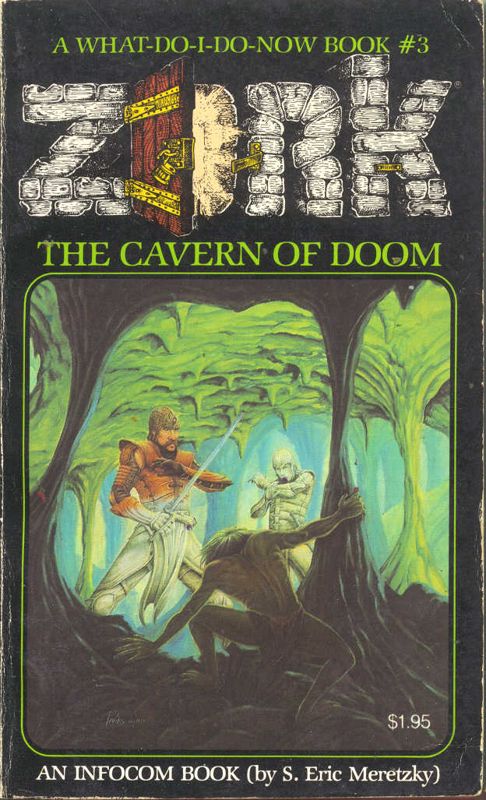
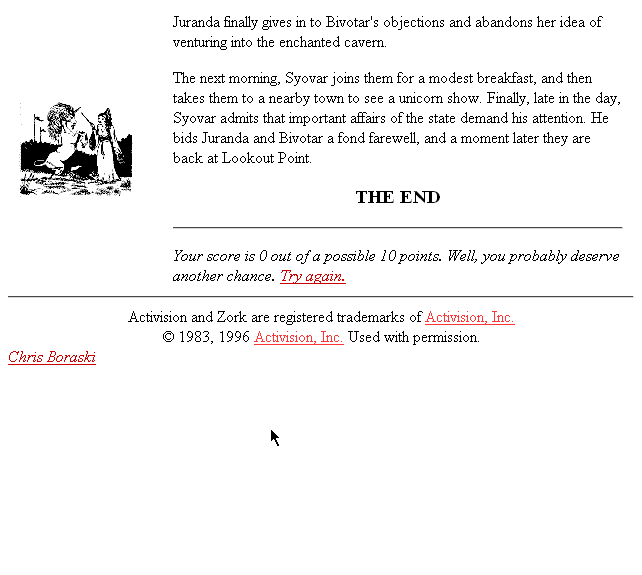
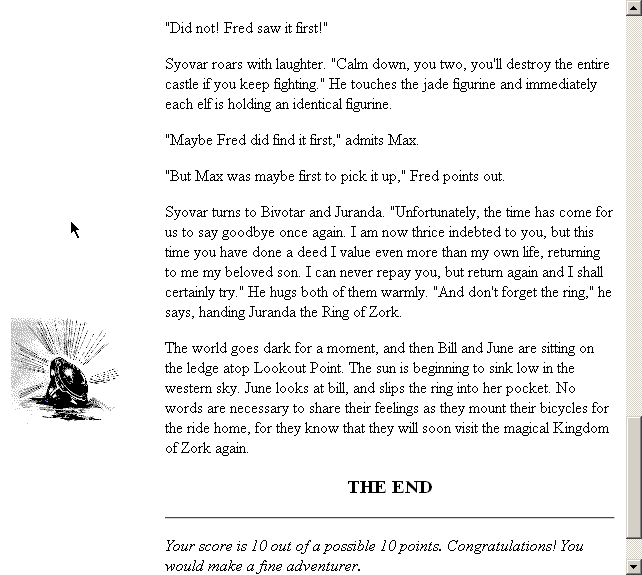

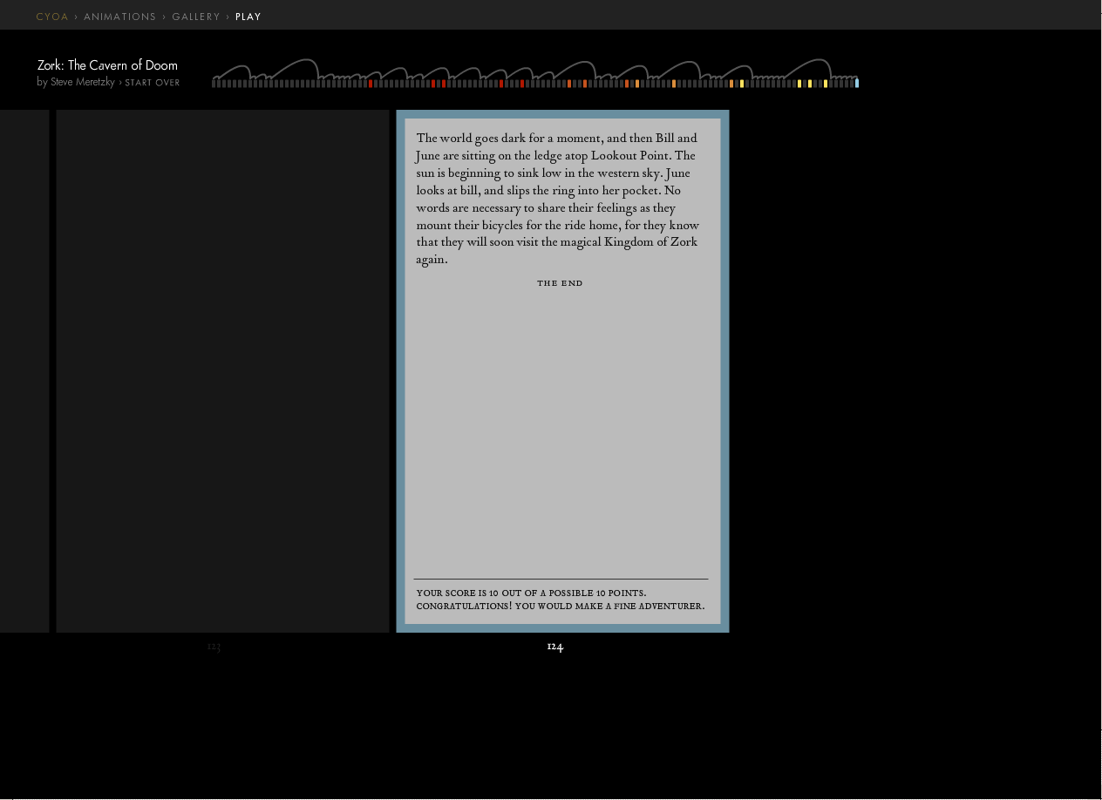
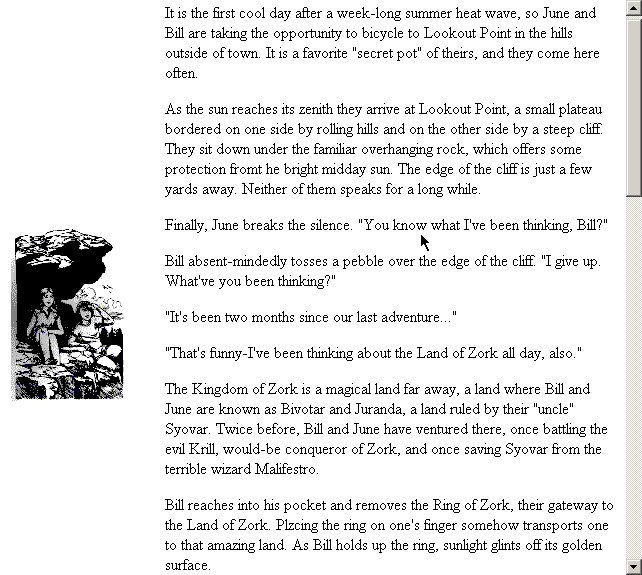



Reviews
There are no reviews yet.